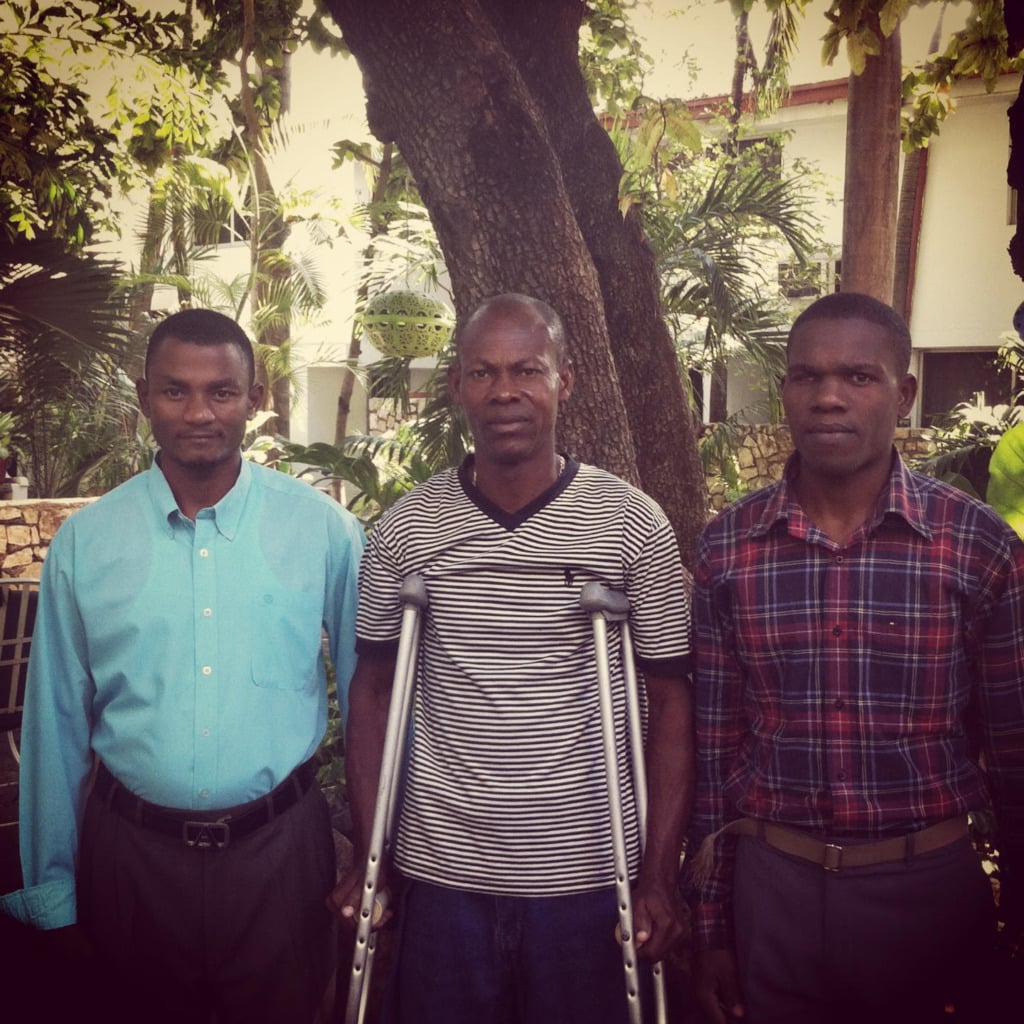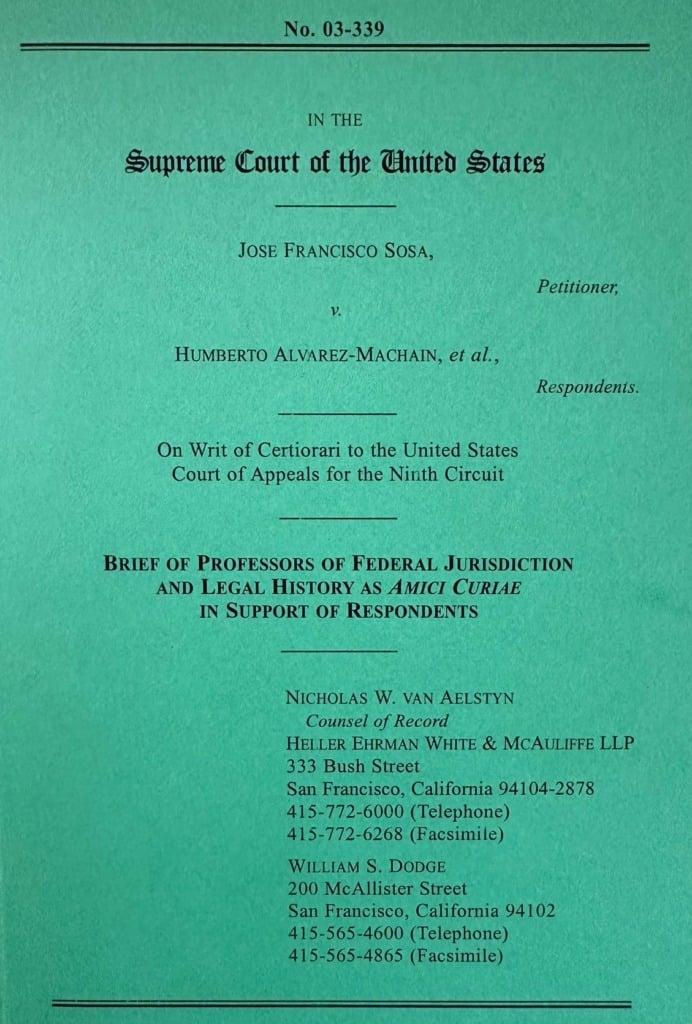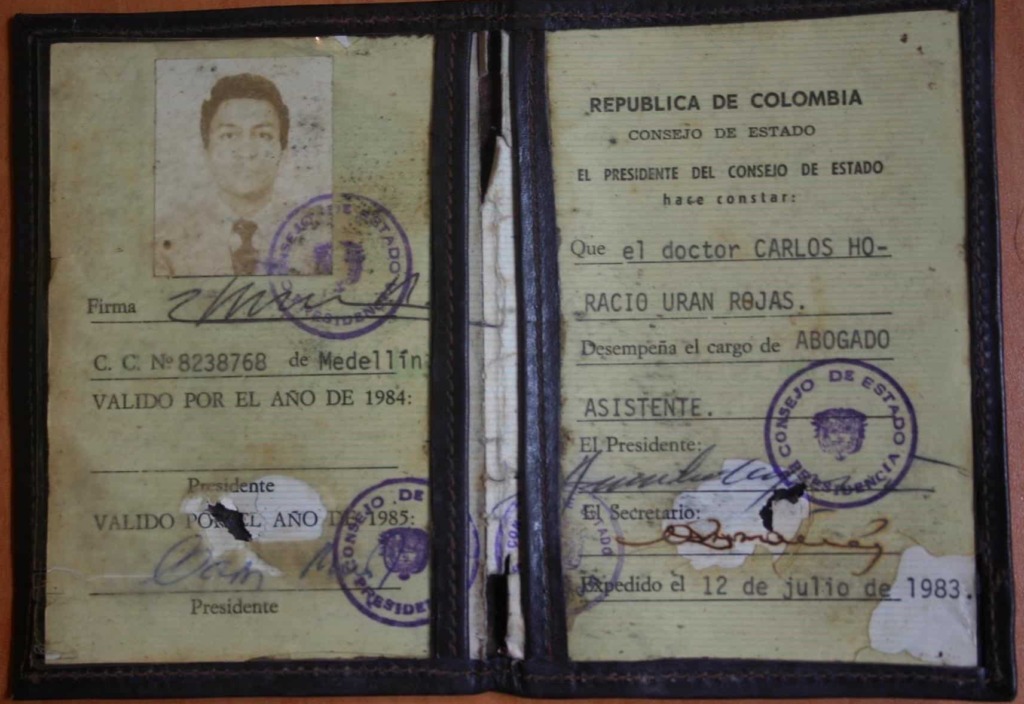Supreme Court Grants Cert in Cisco
On Friday, the Supreme Court granted cert in Cisco Systems, Inc. v. Doe I to address two questions: (1) whether claims for aiding and abetting human rights violations can be brought under the Alien Tort Statute (ATS); and (2) whether such claims can be brought under the Torture Victim Protection Act (TVPA). I have discussed…
Continue ReadingSolicitor General Recommends Granting Cert in Cisco
In Doe v. Cisco Systems Inc. (2023), the Ninth Circuit held that claims for aiding and abetting human rights violations could be brought under the Alien Tort Statute (ATS) against Cisco Systems and under the Torture Victim Protection Act (TVPA) against Cisco’s former CEO. The plaintiffs allege that Cisco designed, built, and maintained a surveillance…
Continue ReadingFirst Circuit Remands Constitutionality of the TVPA to District Court
In Boniface v. Viliena, a Massachusetts jury found a former Haitian mayor liable under the Torture Victim Protection Act (TVPA) for extrajudicial killing, attempted extrajudicial killing, and torture, awarding the three plaintiffs $15.5 million in compensatory and punitive damages. On appeal to the First Circuit, the defendant’s principal arguments were (1) that the TVPA does…
Continue ReadingFifth Circuit Holds that TPVA Does Not Abrogate Foreign Official Immunity
The Torture Victim Protection Act (TVPA) creates a civil cause of action for torture and extrajudicial killing done under color of foreign law. In Does 1-5 v. Obiano, the widows of five men killed by the Nigerian military during peaceful rallies for Biafran independence sued Willie Obiano, the former governor of the state where the…
Continue ReadingFirst Circuit Argument Weighs Constitutionality of TVPA
Last month, the First Circuit (Judge Lara Montecalvo, presiding, with retired Justice Stephen Breyer and Senior Judge Sandra Lynch) heard oral argument in Boniface v. Viliena. Viliena, a Haitian national who has been a legal permanent resident of the United States since 2008, is challenging a $15.5 million jury award under the Torture Victim Protection…
Continue ReadingConstitutionality of TVPA Challenged in First Circuit
As previously reported at TLB, a Massachusetts jury last year awarded $15.5 million in damages against Jean Morose Viliena for torture and extrajudicial killing under the Torture Victim Protection Act (TVPA). Viliena was mayor of a town in Haiti where the three plaintiffs lived. The jury found him responsible for murdering the brother of one…
Continue ReadingD.C. Circuit Revives Case by Former Saudi Official with Ties to U.S. Intelligence
Dr. Saad Aljabri, a former Saudi official who lives in Canada, sued Crown Prince Mohammed bin Salman (“MBS”) and other defendants, alleging that they tracked him down and tried to kill him because of his relationship to the United States and to the former Crown Prince of Saudi Arabia. As covered at TLB, federal district…
Continue ReadingThrowback Thursday: Sosa v. Alvarez-Machain
On June 29, 2004, two decades ago, the Supreme Court decided Sosa v. Alvarez-Machain, recognizing an implied cause of action under the Alien Tort Statute (ATS) for violations of human rights norms that are generally accepted and specifically defined. In this post, I look back at Sosa and discuss what has happened in ATS litigation during…
Continue ReadingExhausting Remedies Under the TVPA
In 1992, Congress passed the Torture Victim Protection Act (TVPA) to create an express cause of action against individuals who, under color of foreign law, commit torture or extrajudicial killing. The TVPA has an exhaustion provision requiring courts to dismiss claims under the provision “if the claimant has not exhausted adequate and available remedies in…
Continue ReadingChiquita Liable for Financing Colombian Paramilitary Death Squads
In a win for international human rights advocacy, a Florida jury has found a U.S. corporation liable for human rights violations committed in a foreign country. This first of three “bellwether” trials involved nine cases. Hundreds remain to be tried in this multidistrict litigation. The jury’s verdict is the latest development in a civil case…
Continue Reading







